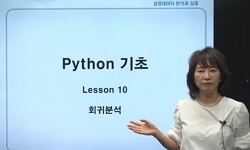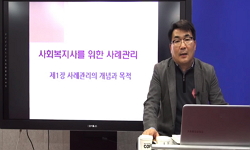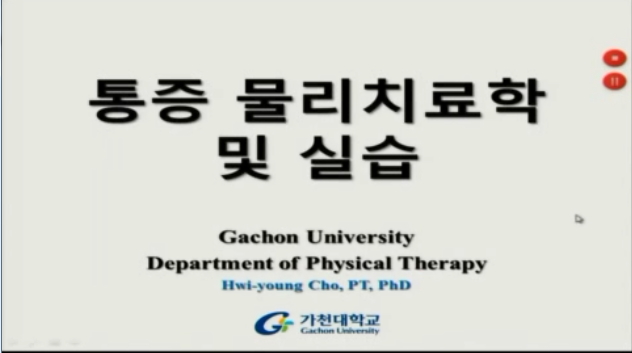본 연구는‘한국형 경영방식’의 고유한 특징을 학문적으로 설명할 수 있는 독창적‘한국형 경영이론’의 정립을 위한 선행 작업이 그 목적이다. 본 논문에서는 그 선행 작업으로서 한국 ...
http://chineseinput.net/에서 pinyin(병음)방식으로 중국어를 변환할 수 있습니다.
변환된 중국어를 복사하여 사용하시면 됩니다.
- 中文 을 입력하시려면 zhongwen을 입력하시고 space를누르시면됩니다.
- 北京 을 입력하시려면 beijing을 입력하시고 space를 누르시면 됩니다.

한국의 거시조직 및 전략경영 연구 현황:한국형 거시조직 및 전략경영 이론의 개발을 위한 선행 연구 = The Current State of Organization Theory and Strategic Management Research in Korea: A Prerequisite for the Development of a K-Management Theory
한글로보기https://www.riss.kr/link?id=A100329483
- 저자
- 발행기관
- 학술지명
- 권호사항
-
발행연도
2015
-
작성언어
-
- 주제어
-
KDC
325
-
등재정보
KCI등재
-
자료형태
학술저널
- 발행기관 URL
-
수록면
23-65(43쪽)
-
KCI 피인용횟수
9
- 제공처
- 소장기관
-
0
상세조회 -
0
다운로드
부가정보
국문 초록 (Abstract)
본 연구는‘한국형 경영방식’의 고유한 특징을 학문적으로 설명할 수 있는 독창적‘한국형 경영이론’의 정립을 위한 선행 작업이 그 목적이다. 본 논문에서는 그 선행 작업으로서 한국 기업의 경영에 대한 기존 거시조직과 전략경영 연구들에서 사용되어온 이론들의 현황과 설명력, 그리고 그 한계를 체계적으로 파악하고자 시도하였다. 이를 위해 한국 경영 학계의 대표적 학술지인 인사조직연구, 경영학연구, 전략경영연구의 해당 논문들을 전수 수집하여 배경이론, 독립변수, 종속변수, 실증데이터 등 다양한 기준에서 기존 연구들의 현황과 추세, 그 설명력을 분석하였다. 그 결과 한국 기업들의 경영에 대한 기존 거시조직 및 전략경영 연구들은 특정 이론패러다임에 초점을 맞추어 그 설명력을 검증하는 패러다임중심 연구 보다는 특정 문제와 현상의 설명에 초점을 맞추어 다양한 이론들을 개방적으로 활용하는 문제중심 연구에, 그리고 방법론적으로 질적 연구 보다는 계량적 연구에 치중해온 것으로 나타났다. 또 기존 연구들에서 활용된 이론적 배경에 있어서 한국형 경영의 고유한 특성을 설명하기 위한 독창적 이론이나 개념, 변수, 관점의 개발 노력은 많지 않았고 구미 선진학계에서 개발된 이론들을 한국 데이터에 차용하는 경향이 강했으며, 이런 기존 구미 이론들은 한국형 경영방식의 성과 보다는 의사결정을 더 잘 설명하는 것으로 나타났다. 이런 발견들을 기반으로 본 연구에서는 독창적인 한국형 경영이론 패러다임을 개발하기 위한 앞으로의 전략적 방향들을 제시한다.
다국어 초록 (Multilingual Abstract)
and specific suggestions for the development of unique new theories about K-Management are discussed.
This paper aims to examine the explanatory power of and limits to the theories on organization theory and strategic management utilized in previous studies in terms of Korean management (K-Management) practices, an essential prerequisite task in the d...
This paper aims to examine the explanatory power of and limits to the theories on organization theory and strategic management utilized in previous studies in terms of Korean management (K-Management) practices, an essential prerequisite task in the development of a unique new theoretical foundation that can effectively explain the idiosyncratic features of K-Management. Focusing on the macro level of management theory, which includes organization theory and strategic management, we systematically analyzed every research paper published in three major academic journals in Korea in terms of theoretical background, independent and dependent variables, empirical context, and methodology in order to examine the ability of these studies to explain Korean management practices. According to the results of our analysis, previous studies of Korean management practices were more problem-centered than paradigm-centered and were biased toward quantitative methodologies at the expense of qualitative ones. In terms of theoretical background, existing organization theory and strategic management studies in Korea have tended to borrow heavily from state-of-the-art theories originally developed in U.S. academia, without making much effort to develop new theories, variables, concepts, and perspectives. Moreover, we found that when US-derived theories were applied to a Korean context, they explained the decisions made by Korean organizations better than they explained performance. Future directions
and specific suggestions for the development of unique new theories about K-Management are discussed.
목차 (Table of Contents)
- Ⅰ. 서론: 한국형 경영방식과 한국형 경영이론을 찾는 선행 과제
- Ⅱ. 한국 경영학계에서 구미 경영이론의 제도화: 원인과 한계
- Ⅲ. 구미의 거시조직이론과 전략경영 이론들
- Ⅳ. 연구 방법론과 데이터
- Ⅴ. 한국 경영학계에서 거시조직 이론과 전략경영 논문 출간 현황
- Ⅰ. 서론: 한국형 경영방식과 한국형 경영이론을 찾는 선행 과제
- Ⅱ. 한국 경영학계에서 구미 경영이론의 제도화: 원인과 한계
- Ⅲ. 구미의 거시조직이론과 전략경영 이론들
- Ⅳ. 연구 방법론과 데이터
- Ⅴ. 한국 경영학계에서 거시조직 이론과 전략경영 논문 출간 현황
- Ⅵ. 한국 거시조직이론 및 전략경영 연구에서 이론별 활용도 분포
- Ⅶ. 한국 거시조직 및 전략경영 연구에서 이론과 변수별 설명력
- Ⅷ. 결론: 연구결과의 해석과 토론, 시사점, 그리고 제언
- 참고문헌
참고문헌 (Reference)
1 김선혁, "환경역동성과 혁신의 위험: 한국 영화사들의 혁신과 조직사멸률, 1919~2004" 한국경영학회 38 (38): 935-965, 2009
2 김경묵, "협력 네트웍에서 기회주의의 예방 : 자산전용성과 정보개방이 하청기업의기술투자에 미치는 영향" 한국인사조직학회 7 (7): 127-165, 1999
3 조동성, "한국재벌연구" 매일경제신문사 1990
4 이학종, "한국의 기업문화" 박영사 1994
5 정구현, "한국의 기업경영 20년 : 개방의 파고를 넘어 세계로" 삼성경제연구소 2008
6 신유근, "한국의 경영 : 그 현상과 전망" 박영사 1996
7 이춘우, "한국기업의 조직문화: 조직문화적 역량 관점과 공유가치DNA구조 관점에서의 한국 대기업의 성장동력 탐색" 한국인사조직학회 22 (22): 39-93, 2014
8 대한상공회의소, "한국기업의 성공과 실패" 대한상공회의소 1996
9 이학종, "한국기업의 구조조정과의 새조직문화개발" 박영사 1998
10 서울대학교출판부, "한국경영학 30년 : 회고와 전망" 서울대학교출판부 1988
1 김선혁, "환경역동성과 혁신의 위험: 한국 영화사들의 혁신과 조직사멸률, 1919~2004" 한국경영학회 38 (38): 935-965, 2009
2 김경묵, "협력 네트웍에서 기회주의의 예방 : 자산전용성과 정보개방이 하청기업의기술투자에 미치는 영향" 한국인사조직학회 7 (7): 127-165, 1999
3 조동성, "한국재벌연구" 매일경제신문사 1990
4 이학종, "한국의 기업문화" 박영사 1994
5 정구현, "한국의 기업경영 20년 : 개방의 파고를 넘어 세계로" 삼성경제연구소 2008
6 신유근, "한국의 경영 : 그 현상과 전망" 박영사 1996
7 이춘우, "한국기업의 조직문화: 조직문화적 역량 관점과 공유가치DNA구조 관점에서의 한국 대기업의 성장동력 탐색" 한국인사조직학회 22 (22): 39-93, 2014
8 대한상공회의소, "한국기업의 성공과 실패" 대한상공회의소 1996
9 이학종, "한국기업의 구조조정과의 새조직문화개발" 박영사 1998
10 서울대학교출판부, "한국경영학 30년 : 회고와 전망" 서울대학교출판부 1988
11 최만기, "한국 조직행동 연구의동향, 문제점, 과제 및 전망" 한국인사조직학회 2 (2): 1-74, 1993
12 김영배, "한국 전략경영 연구의현황과 전망" 한국인사조직학회 2 (2): 139-188, 1993
13 이진규, "한국 인사관리 연구의동향과 과제" 한국인사조직학회 2 (2): 75-137, 1993
14 김양민, "한국 대기업의 성공적인 성장요인: 내·외부적 요인과 전략적 특성들" 한국인사조직학회 22 (22): 95-143, 2014
15 임상훈, "한국 대기업의 노사갈등 외부화 기제에 관한 연구" 한국인사조직학회 22 (22): 175-202, 2014
16 이선구, "한국 노사관계 연구의현황과 전망" 한국인사조직학회 2 (2): 189-231, 1993
17 김성수, "한국 기업의 전략적 인사관리: 조직역량 구축을 중심으로" 한국인사조직학회 22 (22): 145-174, 2014
18 정희수, "최고경영층의 전략적리더십과 기업성장" 한국전략경영학회 4 (4): 53-76, 2001
19 김언수, "진입이전 자원이 신규사업의 경쟁전략과 기업성과에 미치는 영향에 대한 연구" 한국경영학회 35 (35): 1531-1564, 2006
20 우형록, "조직변화의 성공요인에 관한 연구 : 6시그마를 중심으로" 한국인사조직학회 21 (21): 181-216, 2013
21 임준연, "제휴 파트너 보유자원이 제휴 학습에 미치는 영향에 관한 연구: CSR 프로그램을 중심으로" 한국전략경영학회 14 (14): 67-88, 2011
22 장세진, "외환위기와 한국 기업집단의변화 : 재벌의 흥망" 박영사 2003
23 정성용, "소비자 네트워크구조와 외부성이 Born global화에 미치는 영향:한국 온라인게임업체의 해외진출시기 미치 진출전략 결정요인에 관하여" 한국경영학회 36 (36): 1389-1417, 2007
24 이경묵, "성공적인 한국 기업집단의 경영체제 특성과 미래 방향 모색" 한국인사조직학회 22 (22): 1-38, 2014
25 이장우, "벤처기업의 성장단계별성공요인에 관한 탐색적 연구" 한국인사조직학회 9 (9): 59-92, 2001
26 김인수, "기업의 흡수능력과 국제경쟁력 : 조직이론에 비춰 본 거시경제 진단" 한국경영학회 24 (24): 1-28, 1995
27 Khanna, T., "Why focused strategies may be wrong for emerging markets" (July-August) : 1-10, 1997
28 Hambrick, D., "Upper echelons theory : An update" 32 (32): 334-343, 2007
29 Chandler, A. D., "The visible hand : The managerial revolution in American business" Harvard University Press 1977
30 Fligstein, N., "The transformation of corporate control" Harvard University Press 1990
31 Weber, M., "The protestant ethic & the spirit of capitalism" Charles Scribner’s Sons 1921
32 Taylor, F. W., "The principles of scientific management" Harper 1911
33 Hannan, M. T., "The population ecology of organizations" 82 : 929-964, 1977
34 Barnard, C. I., "The functions of the executive" Harvard University Press 1938
35 Hitt, M. A., "The essence of strategic leadership" 9 (9): 3-14, 2002
36 Henderson, L. J., "The effects of social environment" 18 : 401-416, 1936
37 Williamson, O. E., "The economic institutions of capitalism" Free Press 1985
38 Porter, M. E., "The competitive advantage of nations" Free Press 1990
39 Selznick, P., "TVA and the grass roots" University of California Press 1949
40 Hannan, M. T., "Structural inertia and organizational change" 49 : 149-164, 1984
41 Burt, R., "Structural holes" Harvard University Press 1992
42 Granovetter, M., "Strength of weak ties" 78 : 1360-1380, 1973
43 Chandler, A. D., "Strategy and structure : Chapter in the history of industrial enterprise" MIT Press 1962
44 Podolny, J. M., "Status signals : A sociological study of market competition" ceton University Press 2005
45 White, H. C., "Social structure from multiple networks, I : Blockmodels of roles and positions" 81 : 730-780, 1976
46 Lin, N., "Social capital" Cambridge University Press 2001
47 Chandler, A. D., "Scale and scope" Harvard University Press 1991
48 Scott, W. R., "Organizations and organizing : Rational, natural and open systems perspectives" Prentice Hall 2006
49 March, J. G., "Organizations" Wiley 1958
50 Child, J., "Organizational structure, environment & performance: The role of strategic choice" 6 : 1-22, 1972
51 Greve, H., "Organizational learning from performance feedback" Cambridge University Press 2003
52 Hannan, M. T., "Organizational ecology" Harvard University Press 1989
53 Davis, J. F., "Organization theory in the early twenty-first century : Institutional fields and mechanisms" 16 (16): 16-44, 2005
54 Lawrence, P. R., "Organization & environment" Harvard Business School Press 1967
55 Williamson, O. E., "Markets & hierarchies" Free Press 1975
56 Weick, K. E., "Making sense of the organization" Blackwell 2001
57 DiMaggio, P. J., "Ironcage revisited : Institutional isomorphism and collective rationality in organizational fields" 148 : 47-160, 1983
58 Strategic Management Society., "Interest groups"
59 Meyer, J. W., "Institutionalized organizations : Formal structures as myth and ceremony" 83 : 340-363, 1977
60 강진구, "How do corporate governance and reporting frequency moderate the relationship between CSR reporting and corporate social performance?" 한국경영학회 41 (41): 643-661, 2012
61 March, J. G., "Exploration and exploitation in organizational learning" 2 : 1-13, 1991
62 Jacoby, S. M., "Employing bureaucracy : Managers, unions, and the transformation of work in American industry" Columbia University Press 1985
63 Weick, K. E., "Educational organizations as loosely coupled systems" 21 : 1-19, 1976
64 Granovetter, M., "Economic action and social structure : The problem of embeddedness" 91 : 481-510, 1985
65 Carroll, G. R., "Concentration and specialization : Dynamics of niche width in populations of organizations" 90 : 1642-1683, 1985
66 Porter, M. E., "Competitive strategy" Free Press 1980
67 Porter, M. E., "Competitive advantage : Creating and sustaining superior performance" Free Press 1985
68 DiMaggio, P. J., "Classification in art" 52 (52): 440-455, 1987
69 Pfeffer, J., "Barriers to the advance of organizational science : Paradigm development as a dependent variable" 18 : 599-620, 1993
70 Wernerfelt, B., "A resource-based view of the firm" 5 (5): 171-180, 1984
71 Cohen, M. D., "A garbage can model of organizational choice" 17 : 1-25, 1972
72 Perrow, C., "A framework for the comparative analysis of organizations" 32 : 194-298, 1967
73 Fiedler, F. E., "A contingency model of leadership effectiveness" 1 : 149-190, 1964
74 Cyert, R. M., "A behavioral theory of the firm" Prentice Hall 1963
동일학술지(권/호) 다른 논문
-
- 한국인사조직학회
- 문계완(Gyewan Moon)
- 2015
- KCI등재
-
- 한국인사·조직학회
- 배종석(Johngseok Bae)
- 2015
- KCI등재
-
통합 기제로서의 사회적 자본: 분리된 활용과 탐험 조직 간 통합을 중심으로
- 한국인사조직학회
- 허문구
- 2015
- KCI등재
-
- 한국인사조직학회
- 양동훈
- 2015
- KCI등재
분석정보
인용정보 인용지수 설명보기
학술지 이력
| 연월일 | 이력구분 | 이력상세 | 등재구분 |
|---|---|---|---|
| 2027 | 평가예정 | 재인증평가 신청대상 (재인증) | |
| 2021-01-01 | 평가 | 등재학술지 유지 (재인증) |  |
| 2018-01-01 | 평가 | 등재학술지 유지 (등재유지) |  |
| 2015-01-01 | 평가 | 등재학술지 유지 (등재유지) |  |
| 2013-02-27 | 학술지명변경 | 한글명 : 인사·조직연구 -> 인사조직연구 |  |
| 2013-02-26 | 학회명변경 | 한글명 : 한국인사·조직학회 -> 한국인사조직학회 |  |
| 2011-01-01 | 평가 | 등재학술지 유지 (등재유지) |  |
| 2009-12-29 | 학회명변경 | 한글명 : 한국인사ㆍ조직학회 -> 한국인사·조직학회 |  |
| 2009-01-01 | 평가 | 등재학술지 유지 (등재유지) |  |
| 2007-07-04 | 학술지명변경 | 외국어명 : Korean journal of management -> Korean Journal of Management |  |
| 2007-01-01 | 평가 | 등재학술지 유지 (등재유지) |  |
| 2004-01-01 | 평가 | 등재학술지 선정 (등재후보2차) |  |
| 2003-01-01 | 평가 | 등재후보 1차 PASS (등재후보1차) |  |
| 2002-01-01 | 평가 | 등재후보 1차 FAIL (등재후보1차) |  |
| 1999-07-01 | 평가 | 등재후보학술지 선정 (신규평가) |  |
학술지 인용정보
| 기준연도 | WOS-KCI 통합IF(2년) | KCIF(2년) | KCIF(3년) |
|---|---|---|---|
| 2016 | 1.29 | 1.29 | 1.59 |
| KCIF(4년) | KCIF(5년) | 중심성지수(3년) | 즉시성지수 |
| 1.64 | 1.69 | 2.995 | 0.48 |




 스콜라
스콜라







